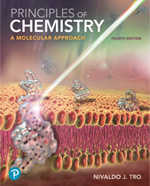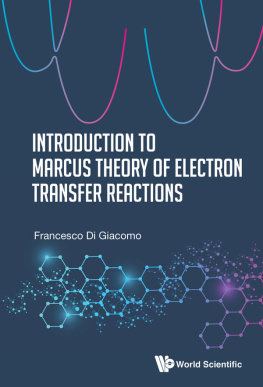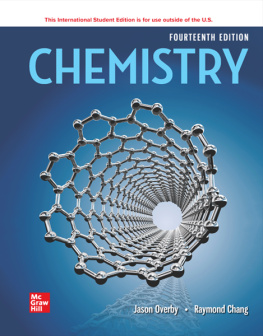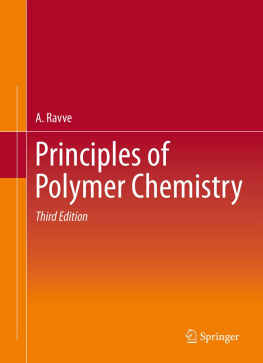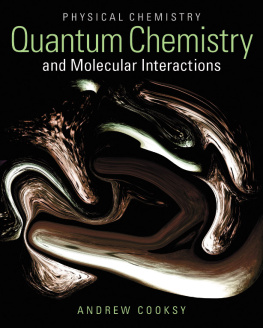Nivaldo J. Tro - Principles of Chemistry: A Molecular Approach
Here you can read online Nivaldo J. Tro - Principles of Chemistry: A Molecular Approach full text of the book (entire story) in english for free. Download pdf and epub, get meaning, cover and reviews about this ebook. year: 2019, publisher: Pearson, genre: Romance novel. Description of the work, (preface) as well as reviews are available. Best literature library LitArk.com created for fans of good reading and offers a wide selection of genres:
Romance novel
Science fiction
Adventure
Detective
Science
History
Home and family
Prose
Art
Politics
Computer
Non-fiction
Religion
Business
Children
Humor
Choose a favorite category and find really read worthwhile books. Enjoy immersion in the world of imagination, feel the emotions of the characters or learn something new for yourself, make an fascinating discovery.
- Book:Principles of Chemistry: A Molecular Approach
- Author:
- Publisher:Pearson
- Genre:
- Year:2019
- Rating:4 / 5
- Favourites:Add to favourites
- Your mark:
- 80
- 1
- 2
- 3
- 4
- 5
Principles of Chemistry: A Molecular Approach: summary, description and annotation
We offer to read an annotation, description, summary or preface (depends on what the author of the book "Principles of Chemistry: A Molecular Approach" wrote himself). If you haven't found the necessary information about the book — write in the comments, we will try to find it.
Principles of Chemistry: A Molecular Approach — read online for free the complete book (whole text) full work
Below is the text of the book, divided by pages. System saving the place of the last page read, allows you to conveniently read the book "Principles of Chemistry: A Molecular Approach" online for free, without having to search again every time where you left off. Put a bookmark, and you can go to the page where you finished reading at any time.
Font size:
Interval:
Bookmark:

A Molecular Approach
FOURTH EDITION
Nivaldo J. Tro
SANTA BARBARA CITY COLLEGE

Director, Physical Science Portfolio Management: Jeanne Zalesky
Executive Courseware Portfolio Manager, General Chemistry: Terry Haugen
Courseware Portfolio Manager Assistant: Harry Misthos
Executive Field Marketing Manager: Christopher Barker
Senior Product Manager: Elizabeth Bell
Courseware Director, Content Development: Barbara Yien
Senior Analyst, Courseware Development: Matthew Walker
Specialist, Art Courseware Development: Laura Southworth
Managing Producer, Science: Kristen Flathman
Senior Content Producer, Science: Beth Sweeten
Director MasteringChemistry Content Development: Amir Said
MasteringChemistry Senior Content Producer: Margaret Trombley
MasteringChemistry Content Producer: Meaghan Fallano
Rich Media Content Producer: Paula Iborra
Production Management and Composition: codeMantra
Design Manager: Maria Gugleilmo Walsh
Interior/Cover Designer: Elise Lansdon
Illustrator: Lachina Creative
Manager, Rights & Permissions: Ben Ferrini
Photo Research & Management: SPi Global
Senior Procurement Specialist: Stacey Weinberger
Cover and Chapter Opening Illustrations: Quade Paul
Copyright 2020, 2017, 2014, Pearson Education, Inc. All rights reserved. Manufactured in the United States of America. This publication is protected by copyright, and permission should be obtained from the publisher prior to any prohibited reproduction, storage in a retrieval system, or transmission in any form or by any means, electronic, mechanical, photocopying, recording, or otherwise. For information regarding permissions, request forms and the appropriate contacts within the Pearson Education Global Rights & Permissions department, please visit www.pearsoned.com/permissions/.
Acknowledgements of third party content appear , which constitutes an extension of this copyright page.
Unless otherwise indicated herein, any third-party trademarks that may appear in this work are the property of their respective owners and any references to third-party trademarks, logos or other trade dress are for demonstrative or descriptive purposes only. Such references are not intended to imply any sponsorship, endorsement, authorization, or promotion of Pearsons products by the owners of such marks, or any relationship between the owner and Pearson Education, Inc. or its affiliates, authors, licensees or distributors.
PEARSON, ALWAYS LEARNING and Mastering Chemistry are exclusive trademarks in the U.S. and/or other countries owned by Pearson Education, Inc. or its affiliates.
1 18

ISBN-10: 0-13-489574-6 / ISBN-13: 978-0-13-489574-1 (Student Edition)
ISBN-10: 0-13-498909-0 / ISBN-13: 978-0-13-498909-9 (Loose Leaf Edition)
As you begin this course, I invite you to think about your reasons for enrolling in it. Why are you taking general chemistry? More generally, why are you pursuing a college education? If you are like most college students taking general chemistry, part of your answer is probably that this course is required for your major and that you are pursuing a college education so you can get a good job some day. Although these are good reasons, I would like to suggest a better one. I think the primary reason for your education is to prepare you to live a good life. You should understand chemistrynot for what it can get youbut for what it can do to you. Understanding chemistry, I believe, is an important source of happiness and fulfillment. Let me explain.
Understanding chemistry helps you to live life to its fullest for two basic reasons. The first is intrinsic: through an understanding of chemistry, you gain a powerful appreciation for just how rich and extraordinary the world really is. The second reason is extrinsic: understanding chemistry makes you a more informed citizenit allows you to engage with many of the issues of our day. In other words, understanding chemistry makes you a deeper and richer person and makes your country and the world a better place to live. These reasons have been the foundation of education from the very beginnings of civilization.
How does chemistry help prepare you for a rich life and conscientious citizenship? Let me explain with two examples. My first one comes from the very first page of of this book. There, I ask the following question: What is the most important idea in all of scientific knowledge? My answer to that question is this: the behavior of matter is determined by the properties of molecules and atoms. That simple statement is the reason I love chemistry. We humans have been able to study the substances that compose the world around us and explain their behavior by reference to particles so small that they can hardly be imagined. If you have never realized the remarkable dependence of the world we can see on the world we cannot, you have missed out on a fundamental truth about our universe. To have never encountered this truth is like never having read a play by Shakespeare or seen a sculpture by Michelangeloor, for that matter, like never having discovered that the world is round. It robs you of an amazing and unforgettable experience of the world and the human ability to understand it.
My second example demonstrates how science literacy helps you to be a better citizen. Although I am largely sympathetic to the environmental movement, a lack of science literacy within some sectors of that movement and the resulting anti-environmental backlash create confusion that impedes real progress and opens the door to what could be misinformed policies. For example, I have heard conservative pundits say that volcanoes emit more carbon dioxidethe most significant greenhouse gasthan does petroleum combustion. I have also heard a liberal environmentalist say that we have to stop using hair spray because it is causing holes in the ozone layer that will lead to global warming. Well, the claim about volcanoes emitting more carbon dioxide than petroleum combustion can be refuted by the basic tools you will learn to use in of this book. We can easily show that volcanoes emit only 1/50th as much carbon dioxide as petroleum combustion. As for hair spray depleting the ozone layer and thereby leading to global warming, the chlorofluorocarbons that deplete ozone have been banned from hair spray since 1978, and ozone depletion has nothing to do with global warming anyway. People with special interests or axes to grind can conveniently distort the truth before an ill-informed public, which is why we all need to be knowledgeable.
So this is why I think you should take this course. Not just to satisfy the requirement for your major and not just to get a good job some day, but to help you to lead a fuller life and to make the world a little better for everyone. I wish you the best as you embark on the journey to understanding the world around you at the molecular level. The rewards are well worth the effort.
First and foremost, thanks to all of you who adopted this book in its previous editions. You helped to make this book one of the most popular general chemistry textbooks in the world. I am grateful beyond words. Second, I have listened carefully to your feedback on the previous edition. The changes you see in this edition are the direct result of your input, as well as my own experience using the book in my general chemistry courses. If you have reviewed content or have contacted me directly, you will likely see your suggestions reflected in the changes I have made. Thank you.
Next pageFont size:
Interval:
Bookmark:
Similar books «Principles of Chemistry: A Molecular Approach»
Look at similar books to Principles of Chemistry: A Molecular Approach. We have selected literature similar in name and meaning in the hope of providing readers with more options to find new, interesting, not yet read works.
Discussion, reviews of the book Principles of Chemistry: A Molecular Approach and just readers' own opinions. Leave your comments, write what you think about the work, its meaning or the main characters. Specify what exactly you liked and what you didn't like, and why you think so.

